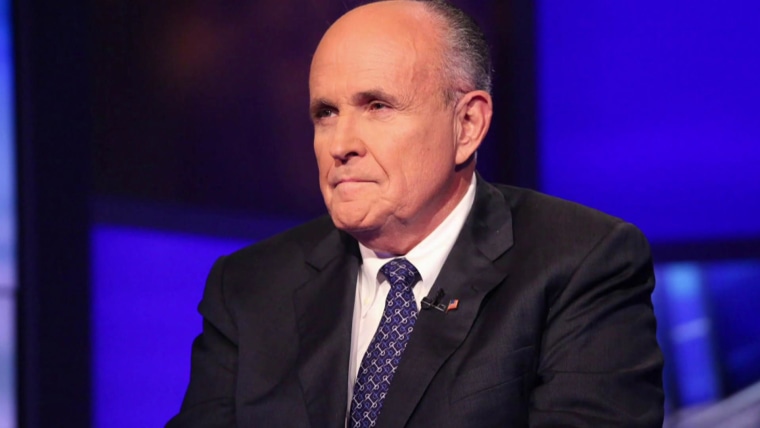On Jan. 23, 2017, three days after Donald Trump took the oath of office, Jordan Peele’s "Get Out" premiered at the Sundance Film Festival in Park City, Utah. The premiere, reportedly attended by Malia Obama, marked the beginning of a certifiable cultural phenomenon: Peele’s chilling directorial debut went on to box-office riches, critical glory and four Oscar nominations.
But with the hindsight of four years, "Get Out" now looks like the first major cultural artifact of the Trump era. The film found festering racism under the surface of a supposedly "post-racial" society, channeling national anxieties as a president who had denigrated people of color and immigrant communities took power in Washington.
Hollywood’s annual release calendar can be arbitrary, but certain movies capture the spirit of their times with remarkable precision and insight. Francis Ford Coppola’s "The Conversation" and Alan J. Pakula’s "The Parallax View" refracted the paranoia of the post-Watergate moment. "Rambo" and "Top Gun" mainlined the brash confidence of the Reagan years.
The exact contours of the Trump era are still coming into focus, and historians will likely study the period’s cultural landmarks for totems and clues. But as President-elect Joe Biden prepares to enter the White House, several major movies — "Get Out" foremost among them — already look like clear mementos of four years of political chaos, social strife and racial reckoning.
In some cases, Trump-era movies mirrored liberal fears or worries about rising cultural currents, mining the 45th president’s tenure for horror, comedy or a Peele-style combination of the two genres. In other cases, the movies from the period challenged the Trump administration head-on, rebuking the new status quo or offering visions of an alternative world.
But there were some movies that seemed to channel Trump’s rhetoric and persona, rebutting common assumptions that the entire film industry is a bastion of conformist liberalism. In sum, dozens of movies released over the last four tumultuous years help us understand the collective experience of Trump’s time in the Oval Office — and what the future might hold.
Fear and loathing: Jordan Peele, 'Joker,' 'Parasite'
In the last four years, many Americans made painful discoveries about a country they thought they knew so well. In their minds, the "post-racial" harmony of the Obama years gave way to the excruciating divisions of the Trump years; the movement for Black lives underscored that systemic racism still deforms American life; ugly truths reared their heads at every turn.
Few filmmakers captured these disorienting revelations like Jordan Peele.
"Get Out," the tale of a Black photographer who falls into a nightmarish abyss while visiting his white girlfriend’s parents, exposed the terrors lurking beneath upper-middle-class politesse. "Us," Peele’s bloody 2019 follow-up, used a familiar horror conceit — sinister doppelgängers — as a springboard for an allegory about the (literal) underbelly of American culture.
"I think in ‘Get Out,’ racism is the monster, and the Trump era has laid bare how much racism was at the root of his rise to power," said Tananarive Due, an author and screenwriter who teaches a course at UCLA — "The Sunken Place" — inspired by "Get Out."
"It’s pretty extraordinary that ‘Get Out’ was not written during the Trump era, because it’s so prescient and such a perfect fit for the times," Due said. "I think Peele’s two films, while very different, are great bookends to this era."
Todd Phillips’ "Joker," one of the most polarizing and fiercely debated blockbusters of the late 2010s, was a veritable Rorschach test of Trump-era anxieties, defying easy ideological categorization.
The movie’s grim portrait of an alienated loner drew acclaim and opprobrium in nearly equal measure, hailed by some as a trenchant comment on simmering male rage and condemned by others as a nihilistic rallying crying for internet trolls. The argument was never really settled.
All the while, angst about big-picture issues coursed through movies across genres, even in big-budget Marvel extravaganzas that virtually dominated Hollywood in the latter half of the decade.
The free-floating dread around ecological disaster cropped up in everything from Paul Schrader’s haunting religious drama "First Reformed" to the apocalyptic epic "Avengers: Infinity War." The global fury over income inequality fueled the plot of Bong Joon Ho’s "Parasite," a genre-twisting yarn about the vast chasm between the elite and the underclass in modern South Korea.
"It’s a Korean film and it’s not specifically about American capitalism, but I don’t know if you can name a better movie about the damning effects of capitalism in this time period," said Brian Raftery, a culture writer and the author of the book "Best. Movie. Year. Ever.: How 1999 Blew Up the Big Screen."
Raftery added that the triumph of "Parasite" at last year’s Oscars, where it became the first foreign-language film to win the award for best picture, was a clear sign that even the Hollywood establishment was hungry for movies that helped us understand the troubling forces shaping politics both here and abroad.
Fighting back: Spike Lee, ‘The Post,’ ‘Roma’
In the late 2010s, as progressives grew increasingly alarmed over federal crackdowns on immigration and widespread social inequities, the prolific director Spike Lee thrust himself back into the center of the American cultural conversation with particular ferocity.
Lee scored one of the biggest hits of his career with "BlacKkKlansman," a docudrama about a real-life Black Colorado police officer who, in the 1970s, infiltrated a chapter of the Ku Klux Klan. "BlacKkKlansman" was both a period piece and a timely manifesto that raged against resurgent white nationalism and climaxed with disturbing footage from the deadly 2017 clashes in Charlottesville, Virginia.
Steven Spielberg also evidently saw fit to take on the Trump administration with newfound intensity. "The Post," a chronicle of The Washington Post’s decision to publish the Pentagon Papers, was an earnest rejoinder to the Trump administration’s attacks on the free press and a reminder of the news media’s responsibility to speak truth to power.
Two of the most storied agitators of the George W. Bush years returned with their own derisive takes on Trump. Michael Moore likened Trump’s election to Hitler’s rise to power in "Fahrenheit 11/9." Sacha Baron Cohen skewered QAnon believers and pranked Rudy Giuliani in "Borat Subsequent Moviefilm."
But other major filmmakers were less explicit in their critique of the Trump era, presenting audiences with what can be interpreted as alternatives to Trump’s vision of "American carnage."
In a time when Trump derided Mexican immigrants, the Mexican auteur Alfonso Cuarón made "Roma," a celebration of the vitality of his home country and the resilience of its Indigenous workers. IndieWire film critic David Ehrlich coined a term, "nicecore," to describe gentle movies that rejected the period's bitter feuds, such as "Paddington 2" and an affectionate documentary about Fred Rogers.
In the cohort of movies that looked for optimism in a time of nonstop cultural warfare, "Black Panther" might be the most enduring. Ryan Coogler’s smash hit, starring the late Chadwick Boseman, revolved around Wakanda, a fictional country in sub-Saharan Africa with technological ingenuity and cultural exuberance that put the U.S. to shame.
"I think for African Americans in particular, Wakanda is that fictional home we never had, where we are free to succeed, where we are represented in the sciences and where we have power," Due said. "In a period when we were made to feel powerless, it was right on time."
Into the fray: Vince Vaughn, ‘Peppermint,’ Dinesh D’Souza
The film industry, generally speaking, is a liberal stronghold. But in the Trump era, a group of relatively under-the-radar crime dramas seemed to speak directly to parts of Trump’s political base — accidentally or otherwise. The storylines played like graphic illustrations of the president’s most incendiary stump speeches.
In the fall of 2017, Vince Vaughn starred in "Brawl in Cell Block 99," a pulpy thriller about a prisoner forced by Mexican drug smugglers to kill a fellow inmate to protect his wife against a forced abortion. The following year, Vaughn teamed up with Mel Gibson for "Dragged Across Concrete," a hard-nosed drama about police officers suspended over brutal treatment of a suspect.
In the fall of 2018, Jennifer Garner led the cast of the vigilante thriller "Peppermint," playing a suburban mom who seeks revenge against the Latin cartel members who killed her daughter and husband. "Peppermint," which recently climbed to the top of Netflix’s most-viewed chart, was a gender-flipped spin on "Dirty Harry" and "Death Wish" for the vengeful age of the border wall.
The parallels between these films and right-wing furies over immigration, race and policing might be coincidental, to be sure. The chief executive of Cinestate, the distributor that released both "Brawl" and "Dragged," told The Hollywood Reporter in 2019 that he didn’t "necessarily crave a conservative audience, but that may be an outcome, and it wouldn’t surprise me."
But the Trump era also saw the debuts of a handful of films that more deliberately reached out to conservative-leaning audiences. The clearest example might be the work of far-right provocateur Dinesh D’Souza, whose 2018 documentary "Death of a Nation" portrays Trump as the contemporary answer to President Abraham Lincoln, besieged by Democratic foes.
"Death of a Nation" was not a mainstream commercial phenomenon. But like many other films highlighted here, it reached an audience who saw it as an affirmation of their political allegiances — and their nightmares about the country.
"Movies" - Google News
January 09, 2021 at 04:30PM
https://ift.tt/3nAaWmY
The movies that defined the Trump era - NBC News
"Movies" - Google News
https://ift.tt/2xuBIZW
Bagikan Berita Ini
















0 Response to "The movies that defined the Trump era - NBC News"
Post a Comment